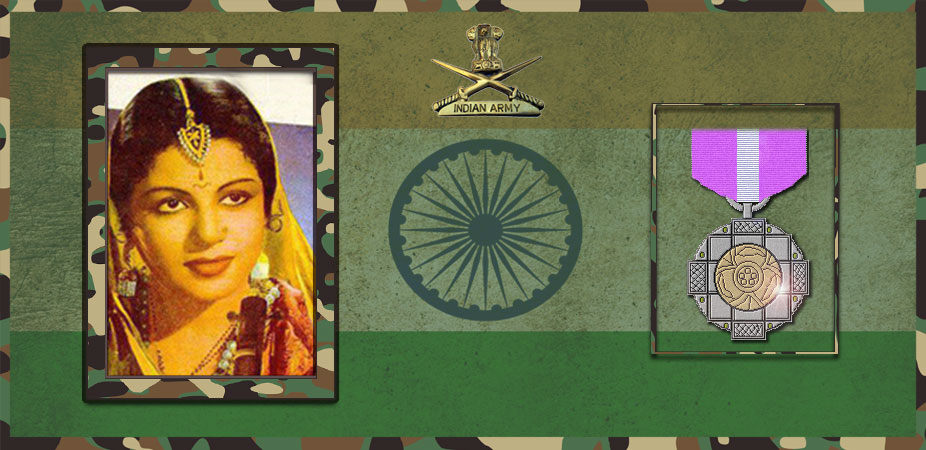Let's salute to our Indian Army together, We are proud to be Indian.
Let's salute to our Indian Army together, We are proud to be Indian.

Madurai Shanmukhavadivu Subbulakshmi (also known as M.S. September 16, 1916 – December 11, 2004) was an Indian Carnaticsinger from Madurai, Tamil Nadu. She was the first musician ever to be awarded the Bharat Ratna, India’s highest civilian honour.She is the first Indian musician to receive the Ramon Magsaysay award, often considered Asia’s Nobel Prize, in 1974 with the citation reading “Exacting purists acknowledge Srimati M. S. Subbulakshmi as the leading exponent of classical and semi-classical songs in the carnatic tradition of South India.”
Madurai Shanmukhavadivu Subbulakshmi (also known as M.S.; September 16, 1916 – December 11, 2004) was an Indian Carnaticsinger from Madurai, Tamil Nadu. She was the first musician ever to be awarded the Bharat Ratna, India’s highest civilian honour.She is the first Indian musician to receive the Ramon Magsaysay award, often considered Asia’s Nobel Prize, in 1974 with the citation reading “Exacting purists acknowledge Srimati M. S. Subbulakshmi as the leading exponent of classical and semi-classical songs in the carnatic tradition of South India.”
M.S. Subbulakshmi began her Carnatic classical music training under her mother Shanmugavadivu; and later in Hindustani classical training under Pandit Narayan Rao Vyas. Subbulakshmi first recording was released when she was 10 years old.
Subbulakshmi gave her first performance at the prestigious Madras Music Academy in 1929, when she was 13 years old . The performance consisted of singing bhajans (Hindu hymns). The academy was known for its discriminating selection process, and they broke tradition by inviting a young girl as a key performer. Her performance was described as spellbinding and earned her many admirers and the moniker of musical genius from critics. Soon after her debut performances, Subbulakshmi became one of the leading Carnatic vocalists.
By the age of seventeen, Subbulakshmi was giving concerts on her own, including major performances at the Madras Music Academy.
She travelled to London, New York, Canada, the Far East, and other places as India’s cultural ambassador. Her concerts at
were significant landmarks in her career.In 1969 she was accompanied by Indian Railways Advisor SN Venkata Rao to Rameshwaram, where she famously sang several songs in front of each idol in the Rameshwaram temple.
After the death of her husband Kalki Sadasivam in 1997, she stopped all her public performances.